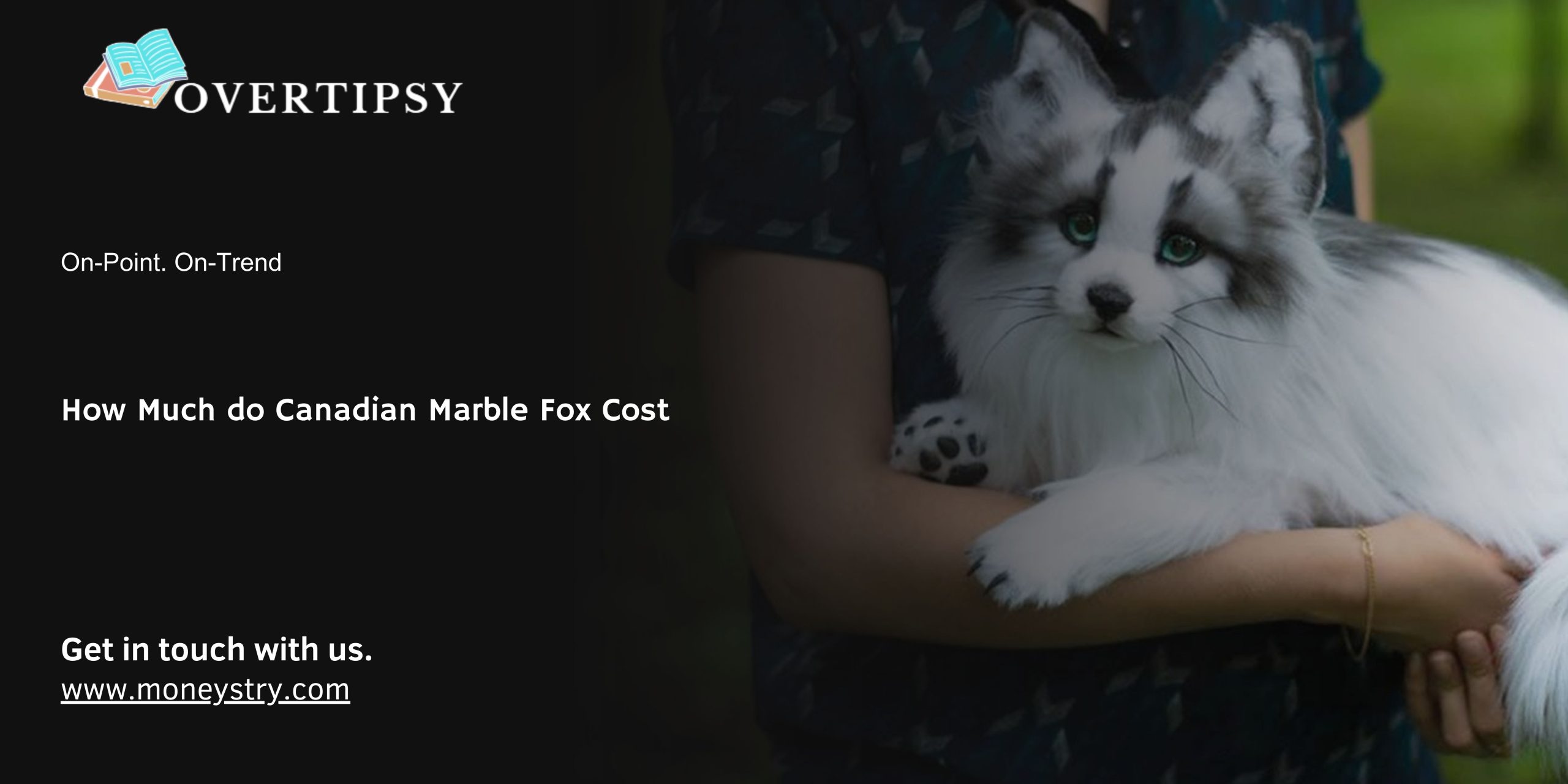Canadian Marble Fox are not a naturally occurring species, but rather a cross between red and silver foxes that were bred in captivity. They are relatively rare, which drives up their price.
 In general, you can expect to pay between $1,000 and $3,000 for a Canadian Marble Fox. However, the price can go even higher, depending on the breeder and the fox’s pedigree.
In general, you can expect to pay between $1,000 and $3,000 for a Canadian Marble Fox. However, the price can go even higher, depending on the breeder and the fox’s pedigree.
Here are some factors that can affect the price of a Canadian Marble Fox:
Rarity: As mentioned above, Canadian Marble Foxes are not as common as other breeds of foxes, so they are naturally more expensive.
Breeder: Reputed breeders who have a good reputation for raising healthy foxes will charge more than backyard breeders.
Pedigree: Foxes with a strong pedigree and a proven track record of good health will be more expensive than foxes with less desirable genetics.
Age: Younger foxes will cost more than older foxes.
Location: The cost of living in the area where the fox is bred can also affect the price.
In addition to the initial purchase price, you should also factor in the cost of food, vet care, and other expenses associated with owning a fox.
Foxes are not low-maintenance pets, so be prepared to spend a significant amount of money on their care.
It is also important to note that Canadian Marble Foxes are not legal to own in all states.
Is it legal to own a Canadian Marble Fox?
The legality of owning a Canadian Marble Fox varies from state to state in the United States. In Canada, it is illegal to own any type of fox as a pet.
The following states allow the ownership of foxes with a permit:
- Arkansas
- Florida
- Indiana
- Kentucky
- Michigan
- Missouri
- Nebraska
- New York
- North Dakota
- Ohio
- Oklahoma
- South Dakota
- Tennessee
- Utah
- Wyoming
The following states prohibit the ownership of foxes altogether:
- Alabama
- Alaska
- Arizona
- California
- Colorado
- Connecticut
- Delaware
- District of Columbia
- Florida
- Georgia
- Hawaii
- Idaho
- Illinois
- Iowa
- Kansas
- Louisiana
- Maine
- Maryland
- Massachusetts
- Michigan
- Minnesota
- Mississippi
- Missouri
- Montana
- Nebraska
- Nevada
- New Hampshire
- New Jersey
- New Mexico
- New York
- North Carolina
- North Dakota
- Ohio
- Oklahoma
- Oregon
- Pennsylvania
- Rhode Island
- South Carolina
- South Dakota
- Tennessee
- Texas
- Utah
- Vermont
- Virginia
- Washington
- West Virginia
- Wisconsin
- Wyoming
It is important to check with your local animal control office or wildlife department to make sure that it is legal to own a fox in your area before you purchase one.
Here are some additional things to consider before owning a Canadian Marble Fox:
- Foxes are not domesticated animals. They are wild animals that have been bred in captivity, but they still have many of the same instincts and behaviors as their wild counterparts. This means that they can be difficult to train and may not be suitable for everyone.
- Foxes are very vocal animals. They will bark, howl, and scream, which can be disruptive to neighbors.
- Foxes are also very destructive animals. They will chew on everything, including furniture, electrical cords, and even walls.
- Foxes require a lot of space. They need a large enclosure with plenty of room to run and play.
- Foxes are expensive to care for. They need a special diet, toys, and vet care.
How much does a fox cost?
The cost of a fox varies depending on the breed, age, and breeder. In general, you can expect to pay between $500 and $6,000 for a fox.
However, there are some foxes that can cost even more. For example, a rare breed of fox, such as the Canadian Marble Fox, can cost upwards of $3,000.
Check Out: Watch Dogs 2 PPSSPP ZIP File Highly Compressed Download For Android
Here are some factors that can affect the cost of a fox:
- Breed: Some breeds of foxes are more expensive than others. For example, red foxes are the most common breed and are relatively inexpensive. However, rarer breeds, such as the Arctic fox, can cost much more.
- Age: Younger foxes are typically more expensive than older foxes. This is because they are easier to train and socialize.
- Breeder: Reputed breeders who have a good reputation for raising healthy foxes will charge more than backyard breeders.
- Location: The cost of living in the area where the fox is bred can also affect the price.
In addition to the initial purchase price, you should also factor in the cost of food, vet care, and other expenses associated with owning a fox. Foxes are not low-maintenance pets, so be prepared to spend a significant amount of money on their care.
It is also important to note that foxes are not legal to own in all states. Please do your research to make sure that it is legal to own a fox in your area before you make a purchase.
Here are some additional things to consider before owning a fox:
- Foxes are not domesticated animals. They are wild animals that have been bred in captivity, but they still have many of the same instincts and behaviors as their wild counterparts. This means that they can be difficult to train and may not be suitable for everyone.
- Foxes are very vocal animals. They will bark, howl, and scream, which can be disruptive to neighbors.
- Foxes are also very destructive animals. They will chew on everything, including furniture, electrical cords, and even walls.
- Foxes require a lot of space. They need a large enclosure with plenty of room to run and play.
- Foxes are expensive to care for. They need a special diet, toys, and vet care.
How rare is the Canadian Marble Fox?
The Canadian Marble Fox is a relatively rare breed of fox. They are not found in the wild but are instead bred in captivity.
The first Canadian Marble Fox was born in 1945 on a farm in Norway. The breed was created by crossbreeding red foxes and silver foxes.
The unique color of the Canadian Marble Fox is the result of a genetic mutation.
The population of Canadian Marble Foxes is estimated to be between 1,000 and 10,000 individuals.
The majority of them are bred in captivity and sold as pets. However, there are also a small number of Canadian Marble Foxes that live in zoos and wildlife sanctuaries.
The rarity of the Canadian Marble Fox is due to a number of factors, including:
- The breed is relatively new, and it has taken time for breeders to develop a stable population.
- The Canadian Marble Fox is a difficult breed to breed. The foxes are not always fertile, and the kits can be difficult to raise.
- The Canadian Marble Fox is a niche breed, and there is not a large demand for them as pets.
Despite their rarity, Canadian Marble Foxes are becoming increasingly popular as pets. They are known for their friendly and playful personalities and their unique coat of fur.
Read Also: 3 Really Easy Steps to Promote Your Business Locally for Free
However, it is important to note that Canadian Marble Foxes are still wild animals, and they require specialized care.
